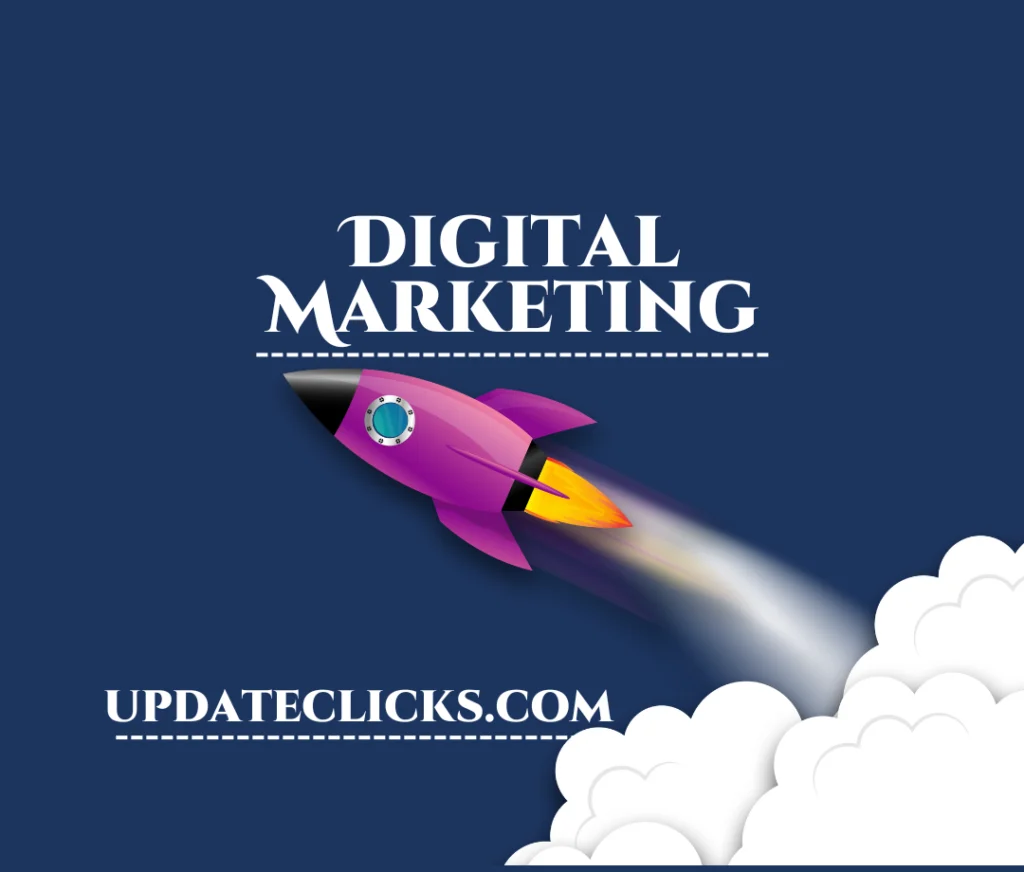
Businesses are continuously looking for new and creative methods to remain. Ahead of the competition in the fast-paced digital world of today. In this quest, digital marketing has shown to be a potent instrument. Providing a plethora of approaches and techniques to connect and interact with customers on the internet.
What is the definition of digital marketing?
All internet initiatives targeted at advertising goods or services. Although Via different digital platforms are included in the category of digital marketing. Digital marketing makes use of the internet to engage potential customers and encourage conversions. Through email campaigns, social media platforms, websites, and search engine optimization (SEO).
Essential Elements of Online Advertising
Optimizing websites: The foundation of any Digital Marketing strategy is a well-designed. Moreover User-friendly website that offers a platform for exhibiting goods and services and turning visitors into paying consumers.
Material marketing: To draw in and keep customers, you need to provide relevant, high-quality material. In order to engage and inform your target audience. Content marketing entails producing and disseminating informative information, such as blog posts, videos, and infographics.
Social Media Marketing: Website traffic, brand awareness, and personal connections with customers may all be achieved by businesses. Using social media platforms such as Facebook, Instagram, and Twitter. These potential are unmatched.
Pay-per-click (PPC) Advertising: With pay-per-click (PPC) advertising, companies can bid on having their ads. Appear in search engine results or on other websites, only having to pay when an ad is clicked. Through targeting people who are actively looking for related items or services, However, this strategy provides optimum return on investment.
Analytics and Tracking: To evaluate the effectiveness of digital marketing efforts and pinpoint areas for development, data-driven insights are essential. Although Analytics solutions help organizations optimize their tactics for better outcomes by providing useful indicators like website traffic. Conversion rates, and client demographics.
Benefits of Digital Marketing
Increased Brand Visibility: Businesses can broaden their audience and increase. Moreover, Their reach by building a strong online presence across many platforms.
Targeted Audience Reach: With the use of precise targeting based on online behavior, hobbies, and demographics, digital marketing makes sure that the proper people see your messages.
Cost-effectiveness: Digital marketing, with solutions to suit any budget, is a more economical way to reach a large audience than traditional advertising tactics.
Challenges in Digital Marketing
Although digital marketing has many advantages, there are also a number of obstacles that organizations must overcome:
Adapting to Algorithm Changes: Because search engine algorithms are always changing, businesses need to stay up to date and modify their SEO tactics as necessary.
Competition: It might be difficult to stand out from the crowd when more businesses are competing for customers’ attention online.
Cybersecurity Risks: Businesses must give cybersecurity a priority in order to safeguard sensitive data from hackers and other online risks, since digital marketing depends on gathering and preserving client data.
Keeping Up with Evolving Trends: Keeping up with the latest developments in technology and platforms can be challenging for organizations.
Digital Marketing Strategies for Businesses
Businesses need to design and execute complete digital marketing strategies that are specific to their target market and goals in order to compete in the digital world. Essential tactics consist of:
Defining Goals and Target Audience: Effective marketing efforts require a clear awareness of your target audience’s wants and preferences as well as well-defined objectives.
Creating a Consistent Brand Image: Consumer trust and brand recognition are largely based on consistency. Make sure that over all digital platforms, you’re messaging, images, and tone are consistent.
Utilizing Various Digital Channels Effectively: Try a variety of digital marketing platforms, including as email, social media, and search engines, to connect with your audience where they are most engaged.
Analyzing and Optimizing Campaigns: Keep a close eye on how well your digital marketing campaigns are performing, and use data analytics to pinpoint areas that could use optimization.
Staying Agile and Adaptable: Since the digital landscape is always changing, be ready to modify your plans and approaches in reaction to shifting consumer preferences and trends.
Case Studies
Let’s look at some real-world case studies that demonstrate the efficacy of digital marketing strategies:
Red Bull: Red Bull has engaged millions of consumers globally and established a strong online presence through creative content marketing and social media campaigns.
Dollar Shave Club: In a matter of years, Dollar Shave Club became a billion-dollar brand by upending the conventional razor business by utilizing social media advertising and video marketing.
Airbnb: Airbnb has effectively cultivated relationships with tourists and homeowners through user-generated content and targeted email marketing, resulting in growth and brand loyalty.
Unique FAQs
What are the typical errors that companies make while using digital marketing?
Common blunders include failing to specify precise goals, misjudging the target audience, and not using analytics to gauge success.
What is the duration required for digital marketing campaigns to yield results?
Depending on a number of variables, including the industry, spending limit, and selected digital marketing strategies, the timeframe for observing results may differ. However, after putting a thorough digital marketing plan into place, firms can usually anticipate seeing returns within a few months.
Are tiny firms suited for digital marketing?
In short, yes, digital marketing may help small firms compete with larger ones by providing affordable means of reaching a specific demographic.
What part does digital marketing content play?
To attract and engage customers, generate traffic to websites, and build authority and reputation within a specialty, content is an essential part of digital marketing.
Conclusion
In conclusion, digital marketing presents companies with chances never before seen to engage customers, increase revenue, and create enduring bonds. Businesses may prosper in today’s cutthroat internet environment by implementing digital strategies and staying ahead of the curve.